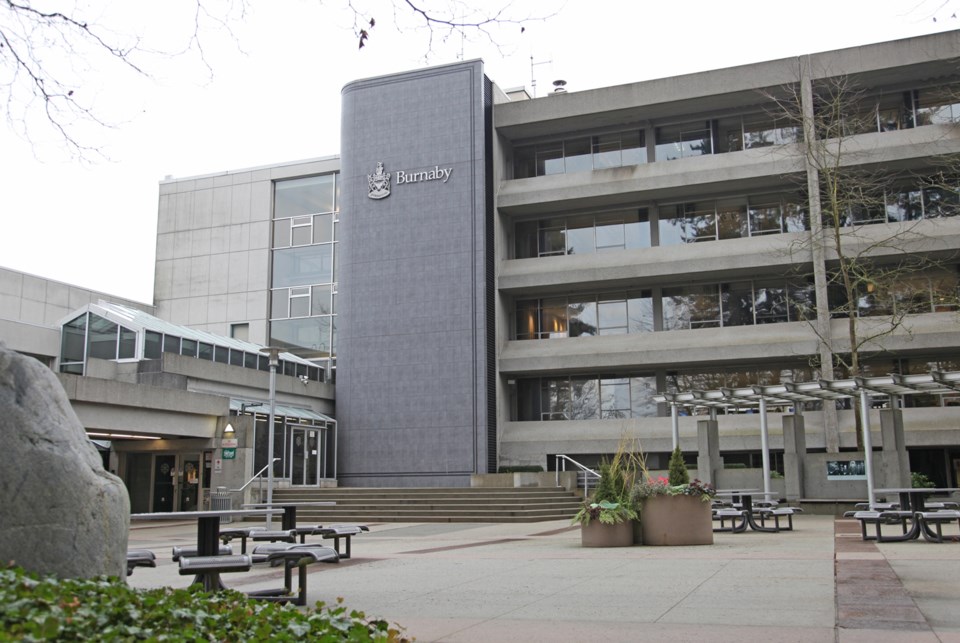Burnaby council is opposing Canada Post’s proposed changes to door-to-door delivery, and lack of public consultation.
At the Monday night meeting, council heard a presentation from three Burnaby mail carriers representing the Vancouver local of the Canadian Union of Postal Workers, also based in the city, Kim Evans, Andy Henderson and Karen De Francesco.
The three mail carriers, who are also Burnaby residents, discussed their concerns with the five-point action plan announced by Canada Post on Dec. 11, 2013, outlining the phasing out of home delivery, replacing it with controversial community mailboxes and the elimination of 6,000 to 8,000 jobs.
"If this plan is implemented, we foresee a great amount of problems for municipal governments, and the citizens they represent," Evans, president of the local union, told council. "Recent reports have (shown) that community mailboxes are a one-stop shop for thieves."
More than 4,800 incidents involving theft, vandalism or arson plagued community mailboxes between 2008 and 2013, Evans noted.
"Mail contains not only obvious valuable items ordered online, but also private information, and criminals can exploit this for identity theft and credit card fraud," he said. "Public safety can also be an issue. These boxes aren't always in locations that's well lit. This can expose people to potential harm when they are forced to pick up their mail."
Community boxes pose other issues, such as discarded items littered around the boxes, and environmental issues of people leaving their car idling as they pick up their mail, Evans said.
"What will the impact be on property values if they're (community boxes) are introduced into an established neighbourhood?" he asked. "Whose house is it going to be in front of? These boxes are not attractive. Residents are unlikely to want them on their property, not only for aesthetic reasons, but also the traffic attracted to the front of their homes."
Evans said no plan has been made public by Canada Post on where the boxes will go, but they would be placed every three to four blocks - possibly decided by lottery.
Henderson, a mail carrier for 27 years, said he's concerned about the lack of public consultation. He said he also worries about his elderly parents, with increasing mobility issues.
"I have major concerns with these proposed changes. I'm concerned with the lack of true, open consultation and the consistent spinning of numbers used to sell these changes, and with the unmanageability of these changes, but what I find most concerning is that these drastic service cuts are in fact unnecessary.
In the 1988/89 fiscal year, Canada Post moved 8.2 billion pieces of mail - before the Internet came in. In the 2012 fiscal year, the crown corporation moved 9.6 billion pieces of mail, according to Henderson.
De Francesco says her job as a mail carrier has afforded her the chance to support her daughter as a single parent.
"My family's lived in Burnaby for over 35 years," she said. "Letter carriers are the ambassador of the streets, if you will, from helping tourists, ... we've aided the elderly who have wandered away from their home, let parents know that their toddlers are in the front yard."
Burnaby council officially passed a resolution opposing Canada Post's proposed changes to home delivery, and will write a letter to the federal government.
Coun. Sav Dhaliwal blasted the "right-wing think tank" that he says is after every crown corporation in an attempt to privatize utility services.
"I think it's a real shame that the government decided to do this at the most inappropriate time," he said, about the announcement happening after parliament broke for the holidays. "They don't have the courage to really work on an open discussion.... This (government) didn't have the courage to face Canadians, and I think Canadians need to wake up to this fact."
Mayor Derek Corrigan also expressed his concerns with the lack of widespread public consultation. He said the private companies lobbying the federal government could be leading the way on this issue.
According to a city staff report, local governments would be most directly impacted by these proposed changes, in terms of the impacts on residents, corporate services, urban form and land-use policies.
The report states Canda Post undertook a five-month public consultation process from April to August 2013, which included 46 community forums.
"In the Lower Mainland, these conversation occurred in Vancouver and Coquitlam," Lou Pelletier, director of planning and building, states in his report. "Generally, however, staff would conclude that the process undertaken for this consultation process does not meet the basic threshold required for either public engagement or consultation for an issue of such national importance and scope."



